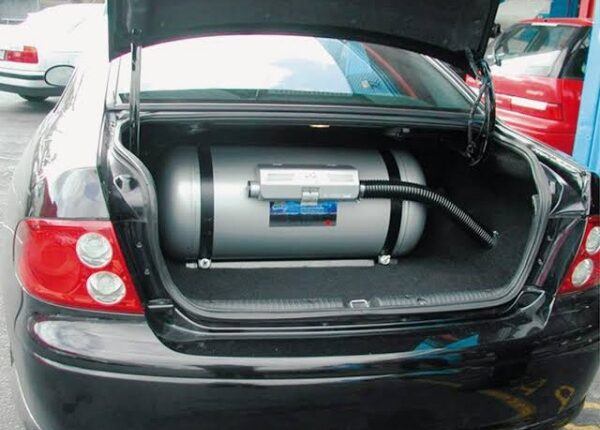The Nigerian Midstream and Downstream Petroleum Regulatory Authority (NMDPRA) has reported a remarkable 2,500% increase in the country’s Compressed Natural Gas (CNG) conversion capacity in 2024.
Mr. Farouk Ahmed, the Authority Chief Executive of NMDPRA, disclosed this at the inaugural Petroleum Industry Stakeholders’ Forum organized by the Ministry of Petroleum Resources on Thursday in Abuja.
Ahmed attributed the surge to the agency’s support of the Presidential Compressed Natural Gas Initiative (PCNGI), which stimulated the establishment of 186 new conversion centers.
“The NMDPRA will continue to collaborate with PCNGI to ensure the deployment of CNG infrastructure in major cities such as Lagos and Abuja, targeting up to 100,000 conversions, while also working with states to develop Nigeria Gas Vehicles (NGVs) in other areas,” Ahmed said.
The conversion drive has significantly increased the population of Nigeria’s Gas Vehicles to an estimated 30,000 to 50,000 vehicles and trucks, a figure that continues to rise daily.
ALSO READ Reservoirs and Boreholes: The unsung heroes of Sokoto’s water scarcity battle
Ahmed also highlighted an investment inflow of over $400 million into 86 daughter stations and 65 mother stations currently under construction. As a result, the country’s CNG refueling capacity has risen from 20 stations to 56.
Ahmed emphasized the collaboration between NMDPRA, the Standards Organisation of Nigeria (SON), the National Automotive Design and Development Council (NADDC), and the National Institute of Transportation Technology (NITT). These partnerships have been instrumental in developing standards and the NGV Monitoring System, which is slated for inauguration this year.
“The NMDPRA remains committed to ensuring that CNG adoption grows safely and sustainably. This includes ongoing efforts to address challenges related to unauthorized operations, limited collaboration for open access to facilities, and non-compliance with regulatory oversight,” Ahmed stated.
Ahmed outlined key challenges, such as the establishment of petroleum handling facilities without proper licensing and insufficient cooperation from some operators. He urged industry stakeholders to comply with regulatory requirements, especially in safety, efficiency, sustainability, consumer protection, and community participation.
Looking ahead, NMDPRA aims to consolidate its successes by upgrading laboratories for enhanced product quality analysis, fostering inter-agency collaborations, and promoting automation and sustainability in the industry.
“As we progress into 2025, NMDPRA remains focused on advancing regulatory oversight and strengthening Nigeria’s CNG ecosystem,” Ahmed concluded.


